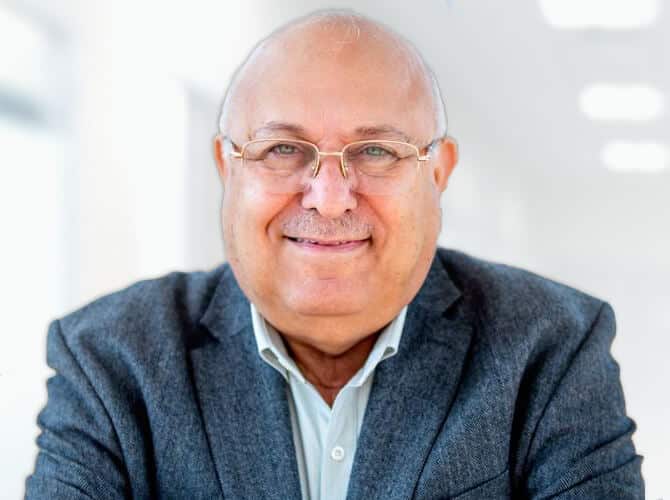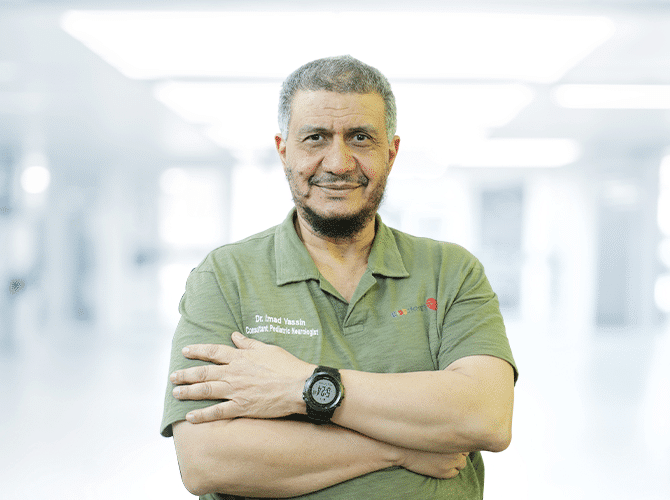Hydrocephalus
Hydrocephalus
Helping Families Navigate Brain Fluid Concerns With Expertise and Care

At KidsHeart Medical Center, we understand how daunting a diagnosis like hydrocephalus can feel. It’s not a word most parents expect to hear — and it often raises more questions than answers.
Hydrocephalus is a condition where excess cerebrospinal fluid (CSF) builds up in the brain’s cavities, causing increased pressure.
It can occur before birth, after injury, or due to infection — and it requires thoughtful, ongoing care.
Our Pediatric Neurology and Neurosurgical partners offer clear, compassionate monitoring and management across Abu Dhabi, Dubai, and Al Ain.

What Is Hydrocephalus?
Hydrocephalus is the abnormal accumulation of cerebrospinal fluid within the brain’s ventricles, leading to increased pressure and possible enlargement of the head in young children.
It may be:
- Congenital: Present at birth due to brain malformations or genetic conditions
- Acquired: Developing after infection, trauma, bleeding, or surgery
- Communicating or Non-communicating: Based on whether CSF flow is blocked or reabsorbed abnormally
Signs vary by age:
- Infants: Rapid head growth, bulging soft spot, poor feeding, irritability
- Toddlers/Older Children: Headache, nausea, blurred vision, unsteady gait, behavior changes
Diagnosis and long-term monitoring are essential to avoid complications.
When Should You Seek Neurological Care?
Contact a Pediatric Neurologist or neurosurgeon if your child:
- Has an enlarging head or tense fontanelle in infancy
- Is diagnosed prenatally or postnatally with enlarged ventricles
- Has symptoms like vomiting, irritability, or eye movement issues
- Is being monitored after brain injury or infection
- Has a shunt and needs follow-up or shows signs of shunt malfunction
Hydrocephalus requires medical vigilance — but with the right care, many children lead full lives.
How We Diagnose and Manage Hydrocephalus
Here’s how we care for children with suspected or confirmed hydrocephalus:
- Detailed History and Physical Examination: We assess symptoms, birth history, and developmental milestones.
- Neuroimaging: MRI or ultrasound (in infants) confirms CSF buildup and monitors ventricular size.
- Coordination With Neurosurgery: If pressure needs relief, a shunt or endoscopic third ventriculostomy (ETV) may be considered.
- Shunt Monitoring and Follow-Up: For children with shunts, we track function, growth, and watch for signs of blockage or infection.
- Long-Term Neurological Support: We monitor cognitive development, motor skills, and school readiness.
We walk alongside families — not just at diagnosis, but through each stage of growth and adjustment.
Why Families Trust KidsHeart
- Pediatric Neurologists with hydrocephalus expertise
- Seamless coordination with pediatric neurosurgeons when needed
- Access to imaging and monitoring tools on site
- Individualized plans for each child’s long-term care
- Available in Abu Dhabi, Dubai, and Al Ain
We bring calm, clarity, and clinical strength — when you need it most.


Dr. Imad Yassin
Consultant Pediatrician/ Pediatric Neurologist – FRCPCH(UK) | Facharzt, FAMAP, Pediatric Neurology Cert (Austria)
Concerned About Head Size, Pressure, or a Recent Diagnosis? Let’s Help You Understand What’s Next.
If your child has hydrocephalus — or you’re navigating a new concern — we’re here with steady, specialized care.
Frequently Asked Questions (FAQs)
It can be. Some children need long-term monitoring, even after treatment.
A shunt is a small device placed to drain excess fluid from the brain to another part of the body. It’s one of the most common treatments.
Yes. Many children with shunts live full, active lives — with regular checkups and precautions.
It varies. Initially frequent, then adjusted based on age, symptoms, and shunt status.
That’s why monitoring is key. We teach parents what to watch for — and act fast if there’s concern.

